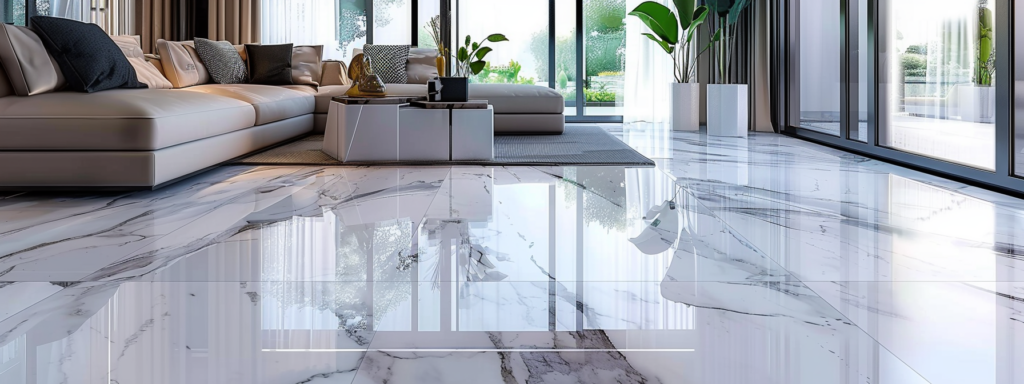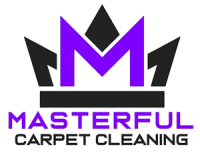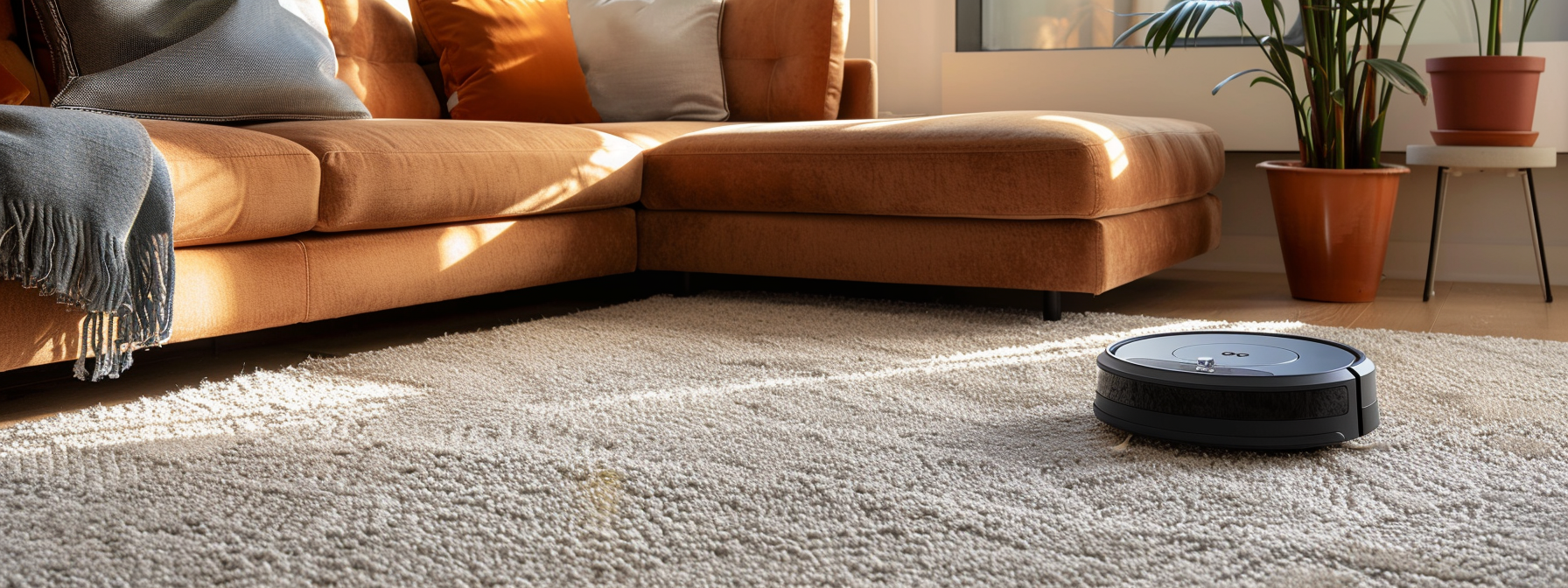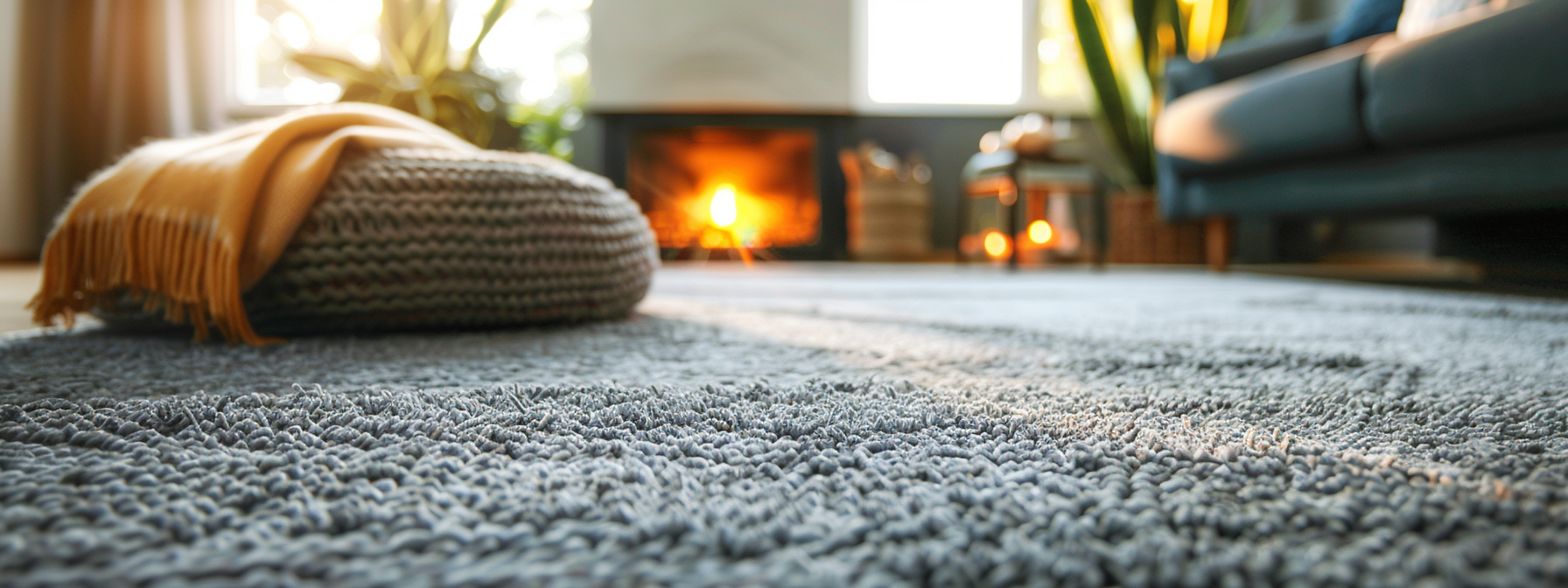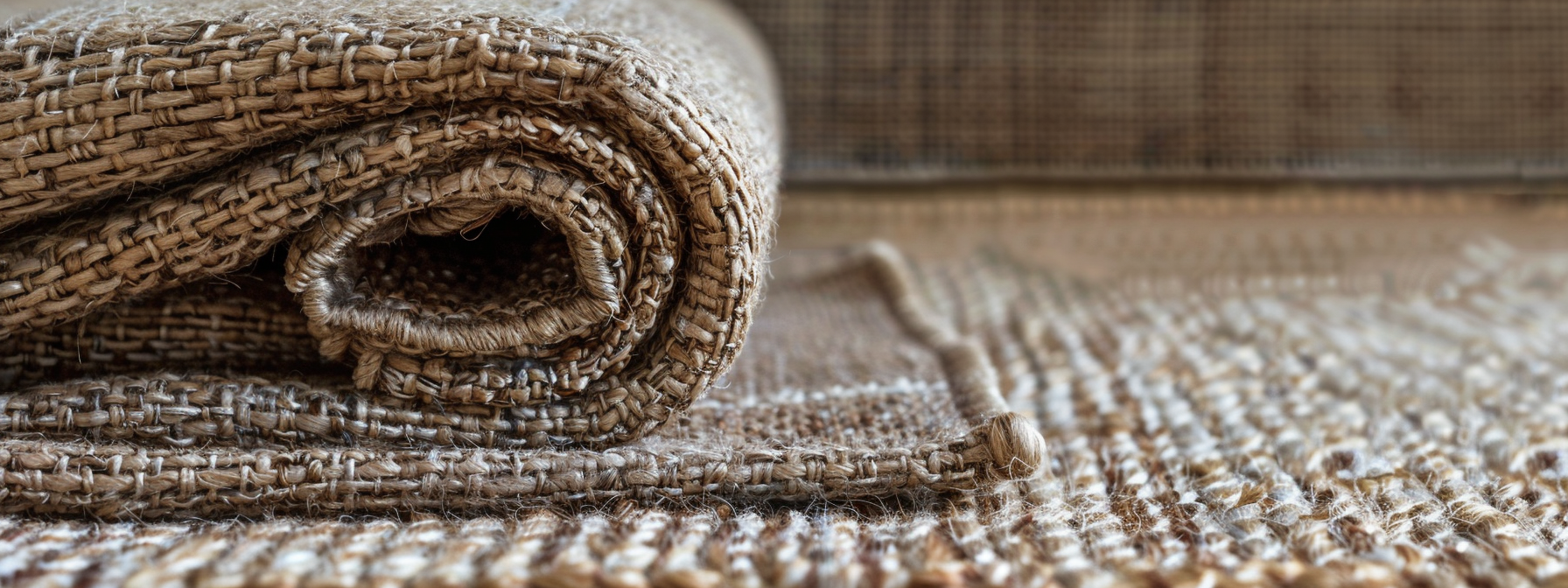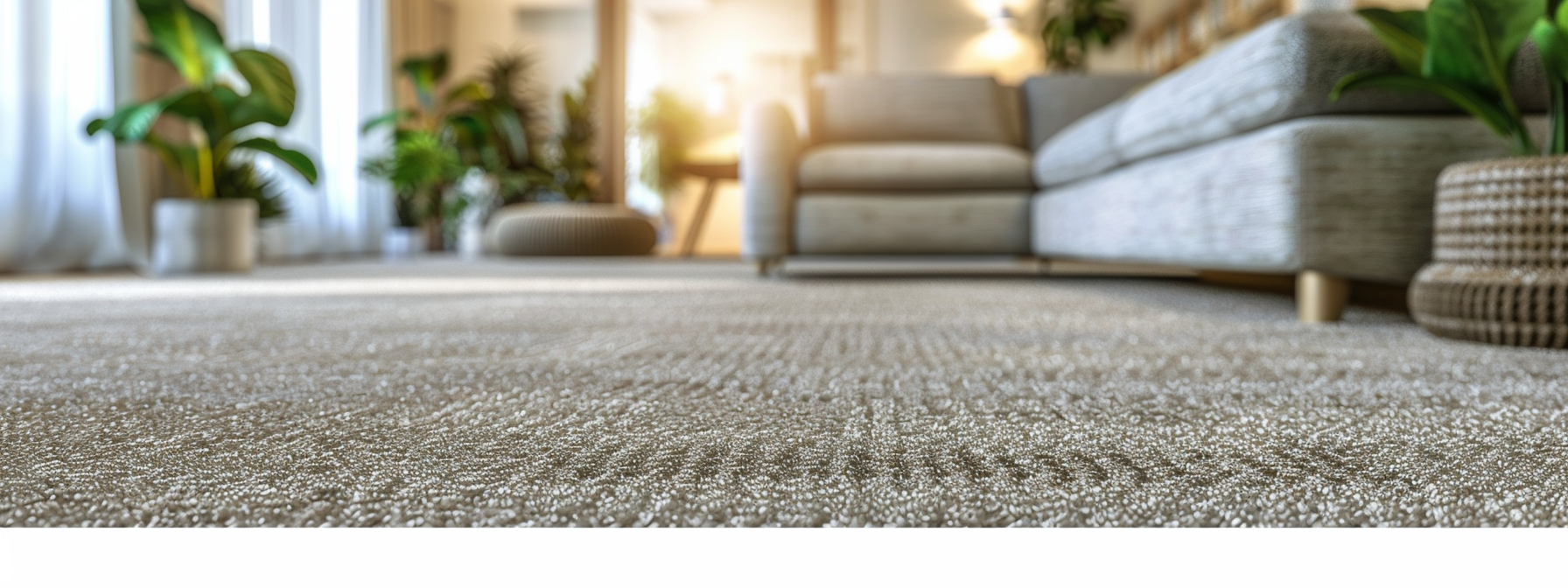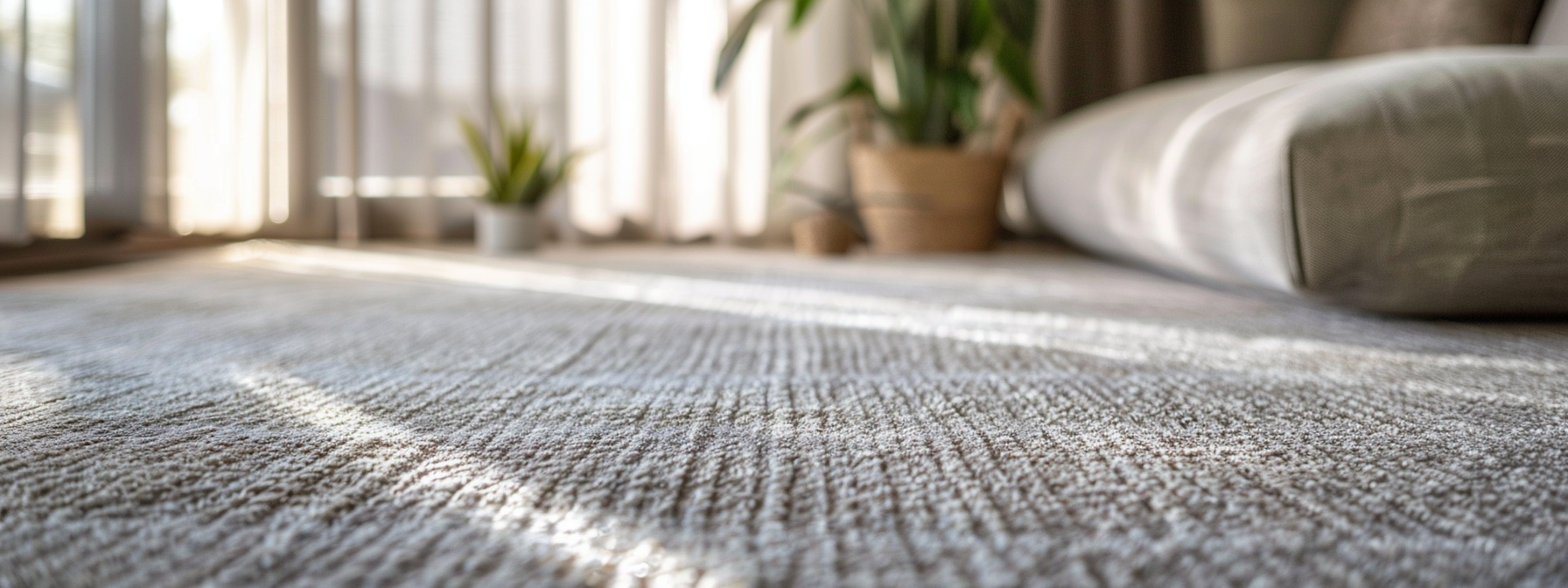How Proper Cleaning Can Extend the Life of Your Tile Floors

Ensuring the longevity and aesthetic appeal of tile floors hinges on the commitment to proper cleaning practices, a fundamental approach that transcends mere appearance to safeguard and extend their life.
Proper cleaning for tile floors encompasses a routine and methodical approach, involving the removal of dirt and debris through sweeping or vacuuming, the application of appropriate cleaners that do not harm tile surfaces or grout, and employing techniques that bolster the floor’s durability while maintaining its visual appeal.
The Importance of Proper Cleaning
Adequate maintenance through proper cleaning is instrumental in extending the life and preserving the appearance of tile floors. It prevents the buildup of harmful substances that can compromise the tile’s integrity, ensuring that both the tiles and grout remain in pristine condition, significantly extending the floor’s overall lifespan.
- Why regular cleaning is important: Dirt and grime can erode the sealant on tiles, leading to potential damage over time. Regular cleaning maintains the protective layer, keeping the tiles in optimal condition.
- Best practices for cleaning various tile types: Different tile materials require tailored cleaning methods to avoid damage. For example, ceramic tiles benefit from gentle cleaning with mild soaps, while porcelain tiles should be cleaned with pH-neutral solutions to avoid harming the tile surface.
- The significance of using correct cleaning products: Using the appropriate cleaning agents for specific tile materials is essential to prevent damage and ensure the tiles retain their aesthetic appeal. Harsh chemicals can deteriorate the tile’s finish and integrity, making the choice of cleaning products important for tile maintenance.
Maintaining tile floors goes beyond simple aesthetics; it’s about preserving their functionality and safety. Dirt accumulation can make floors slippery, posing a risk to occupants.
Each tile type, from ceramic to natural stone, has unique cleaning requirements that, when followed, prevent damage and maintain the floor’s beauty and safety. For example, acidic cleaners should be avoided on natural stone tiles to prevent etching, whereas ceramic tiles can handle mild acidic solutions like vinegar for cleaning.

Understanding Your Tile
Tile flooring is not only a practical and durable choice for both residential and commercial spaces but also offers a variety of design possibilities. To ensure that your tile floors maintain their beauty and longevity, it’s important to understand the specific characteristics and cleaning requirements of each tile type.
Natural Stone Tile
Natural stone tiles, including marble, slate, granite, and limestone, are known for their unique patterns and textures. They are porous and can absorb spills and stains if not sealed properly.
- Cleaning Needs: Use pH-neutral cleaners specifically designed for natural stone to avoid damaging the stone or the sealant. Avoid abrasive brushes and opt for soft cleaning methods to maintain the integrity of the stone’s surface.
Porcelain Tile
Porcelain tiles are dense, less porous, and known for their durability and resistance to moisture, making them suitable for high-traffic areas and various climates.
- Cleaning Needs: Determine the finish (polished, textured, or matte) to choose the correct cleaning method. Generally, vacuuming or dust mopping to remove debris, followed by mopping with warm water and a mild detergent, works well. For polished tiles, dilute the solution to half strength to avoid leaving streaks.
Nonslip Tile
Designed to prevent slips and falls, nonslip tiles have a textured surface that provides additional grip but can trap more dirt.
- Cleaning Needs: Sweep or vacuum regularly to remove surface dirt. Clean with a biological cleaner with a neutral pH to maintain the antislip properties without damaging the tile. Avoid harsh chemicals and abrasive tools.
High-Gloss Tile
High-gloss tiles are known for their shiny finish that can highlight watermarks, grease, and fingerprints, requiring more frequent cleaning to maintain their appearance.
- Cleaning Needs: Use liquid detergents to remove grime but rinse with clean water and dry with a cloth to prevent watermarks and streaks. Regular, gentle cleaning is recommended to preserve the high-gloss finish.
Understanding the specific needs of each tile type is key to maintaining the appearance and extending the life of your tile floors. By employing the right cleaning techniques and products tailored to each tile type, you can ensure your floors remain clean, safe, and visually appealing for years to come.
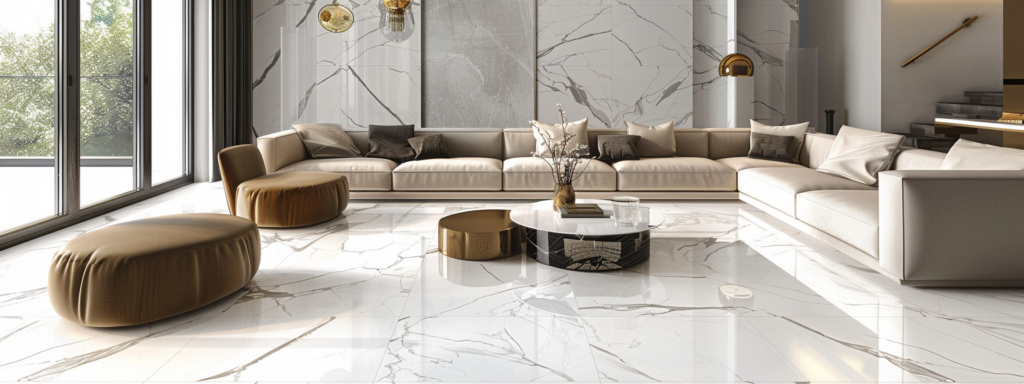
Daily and Weekly Cleaning Practices for Tile Floors
Maintaining the beauty and durability of tile floors involves a combination of daily and weekly cleaning routines tailored to different types of tile materials.
Daily Maintenance
Sweeping and Vacuuming: The first step in daily tile floor maintenance is to remove loose dirt, dust, and debris. It’s essential to get into all the corners and edges where dirt tends to accumulate. Regular sweeping or vacuuming prevents the buildup of grime and protects the tiles from getting scratched by hard particles.
Weekly Deep Cleaning
Mopping: For a more thorough clean, mopping your floors with the right solution is key. You can use just warm water for a simple clean, which is often enough for most tile types. For a deeper clean, a mixture of warm water with a mild soap (like dish detergent) or a commercial floor cleaner that’s safe for your type of tile can be used. It’s important to follow the manufacturer’s instructions if opting for a commercial cleaner.
Special Care for Different Tile Types
Depending on your tile type, you may need to adjust your cleaning solution:
-
- Porcelain Tiles: Avoid using harsh chemicals like ammonia, chlorine bleach, and vinegar. Neutral pH cleaners are recommended. A mix of warm water and mild dish soap can effectively clean porcelain tiles without damaging them. Rinse with clear water and dry with an old towel for a shiny finish.
- Ceramic Tiles: These tiles can be cleaned with a solution of vinegar and liquid dish detergent in hot water. It’s advised to avoid abrasive materials and bleach to prevent scratches and discoloration.
- Vinyl and Linoleum Floors: A DIY solution of apple cider vinegar or white vinegar mixed with warm water works well for cleaning. Avoid stiff brushes and abrasive cleaners to protect the floor’s topcoat.
- Natural Stone Floors: Use cleaners designed for natural stone, avoiding acidic products. A diluted solution of mild dish soap or ammonia in water can be used, ensuring the floor is dried afterward to avoid leaving residues.
Grout Cleaning
Grout should also be part of your cleaning routine. A mixture of water and hydrogen peroxide, applied with a toothbrush, can effectively clean grout without damaging it. It’s advisable to seal grout after installation and reseal it every six months to protect it from stains and water damage.
By adhering to these daily and weekly cleaning routines, you can maintain the aesthetic and longevity of your tile floors, ensuring they remain a beautiful and durable part of your home.

Deep Cleaning Your Tile Floors
Deep cleaning tile floors is essential to maintain their appearance and longevity. This comprehensive approach ensures that even the toughest dirt and grime are removed.
Removing Debris
- Instruction: Begin by sweeping or vacuuming the floor to remove any loose dirt, dust, and debris. This step is important for preventing scratches during the wet cleaning process. A soft-bristled brush or a vacuum with a hard floor setting is ideal to avoid damage.
Cleaning Solutions
- Instruction: Mix a suitable cleaning solution based on the type of tile you have. For a natural, eco-friendly option, combine one cup of white vinegar with one gallon of warm water. Alternatively, a commercial floor cleaner with a neutral pH level can be used, especially for more stubborn stains. Always follow the manufacturer’s instructions when using commercial products.
Mopping Technique
- Best Practices: Use a soft cloth, sponge, or mop for cleaning, ensuring to rinse or wring it out well between uses to prevent leaving any residue. After applying the cleaning solution, rinse the floor with clean water to remove any leftover cleaner. Allow the floor to air dry or use a dry mop to speed up the process, ensuring a streak-free finish.
Special Considerations for Different Tile Types
Ceramic and Porcelain Tiles
- Instruction: Use a gentle soap and water solution for both ceramic and porcelain tiles. For unglazed tiles, which are more susceptible to staining, take extra care to avoid harsh chemicals that can penetrate and damage the tile.
Marble and Natural Stone Tiles
- Warning: Acidic cleaners, including vinegar, should be avoided as they can etch the surface of these porous tiles. Opt for specialized natural stone cleaners that are pH-neutral. Regular cleaning with a mild detergent diluted in water can help maintain their natural beauty without causing damage. Soft cloths or mops are recommended over abrasive brushes.
Vinyl and Linoleum Floors
- These floors can be cleaned with a simple solution of vinegar and water for everyday maintenance. For deeper cleans, use a cleaner recommended by the manufacturer or a mild detergent solution. It’s important to avoid excessive water, which can seep into and damage these materials.
By adhering to these detailed cleaning practices and considering the specific needs of different tile materials, you can ensure your tile floors remain in pristine condition for years to come. Always consult the tile’s manufacturer guidelines for the most accurate and safe cleaning recommendations.
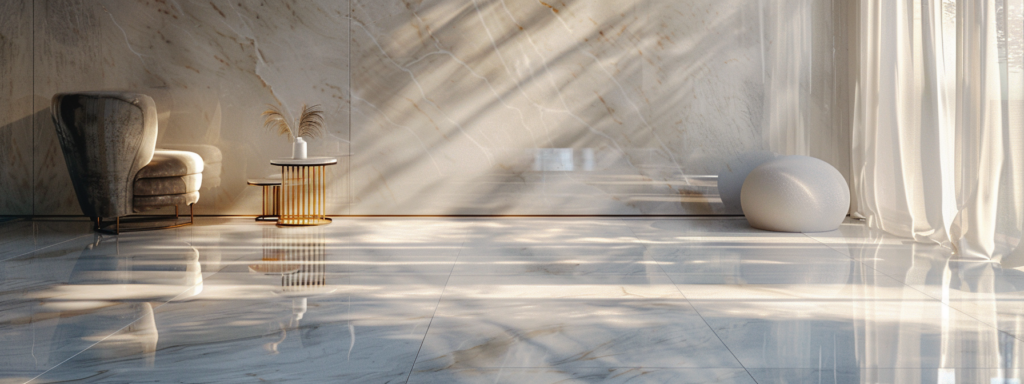
Grout Cleaning and Maintenance
Grout fills the spaces between tiles, but because it’s porous, it can easily absorb dirt, stains, and grime, making thorough cleaning essential. Proper grout maintenance not only keeps your floors looking new but also extends the life of the tiles by preventing damage and degradation.
Steps for Cleaning Grout
- Sweep or Vacuum: Start by removing loose dirt from the surface. This step is vital for preventing the dirt from being pushed into the grout lines during wet cleaning.
- Create a Cleaning Solution: Mix a paste of baking soda and water for a gentle, effective cleaner. Apply this paste directly to the grout and scrub with a toothbrush or grout brush.
- Rinse Thoroughly: After scrubbing, rinse the area with warm water to remove any residue of the cleaning solution. Ensure no cleaner is left behind to attract more dirt.
- Dry the Area: Allow the cleaned grout to air dry or wipe it down with a dry towel to remove any lingering moisture.
Sealing and Periodic Deep Cleaning
- Sealing your grout can protect it from stains and make it easier to clean. Depending on the type of sealer, reapplication might be necessary every 6 to 18 months.
- For deep cleaning, consider professional services, especially if the grout is heavily stained or if you’re unable to remove all the dirt and grime with DIY methods.
Common Mistakes to Avoid
- Using Abrasive Cleaners: These can scratch tiles and degrade grout, making it more susceptible to dirt and damage.
- Over-Wetting: Excessive water can seep into grout, causing it to weaken or become a breeding ground for mold and mildew.
- Neglecting Spills: Immediate cleanup of spills is essential to prevent staining of both tiles and grout.
Maintaining clean and well-kept grout is key to preserving the overall look and durability of your tile floors. Regular cleaning, proper sealing, and avoiding common cleaning mistakes will help ensure your floors stay beautiful and functional for years to come.
Recommended Products and Tools
For maintaining your tile floors effectively, it’s essential to use the right cleaning products and tools. Here’s a list of recommended items based on reviews and expert opinions.
- O-Cedar EasyWring Microfiber Spin Mop: Highly praised for its ease of use and effectiveness, this mop is suitable for various floor types including wood, laminate, tile, and vinyl.
- Nature’s Miracle Hard Floor Cleaner: Ideal for pet owners, this cleaner is non-toxic and safe for use around pets and children, effectively removing stains and odors.
- Bona Floor Cleaner Spray: Known for its streak-free formula, this cleaner is safe for linoleum, stone, terrazzo, vinyl, and more, leaving your floors looking spotless.
- Better Life Natural Tub and Tile Cleaner: A long-lasting, non-toxic cleaner that tackles soap scum, rust, and hard water stains, making it a great choice for bathroom tiles.
- Hoover FloorMate Deluxe Hard Floor Cleaner: A vacuum cleaner that does most of the work for you, featuring scrub brushes for a thorough and gentle clean on tile, laminate, hardwood, and more.
- Black Diamond Stoneworks Marble and Tile Cleaner: Ideal for natural stone and tile, this biodegradable concentrate is hypoallergenic and streak-free, although it may require rinsing after use.
- Clorox Clean-Up Disinfecting Bleach Cleaner Spray: Effective in bathrooms for removing mold, mildew, soap scum, and limescale from tile and grout surfaces.
Regular maintenance, using products suited to your specific type of tile, and addressing spills and stains promptly can prevent damage and keep your floors looking new for years. Remember to consult manufacturer instructions for both your flooring and cleaning products to ensure compatibility and prevent damage.
Author
-

As the Co-Owner of Masterful, Randy has been providing quality cleaning services to the Salem and Portland areas of Oregon for many years. He has built a reputation for excellence in the industry. His team take prides in using the latest cleaning techniques and technologies to deliver exceptional results every time.
